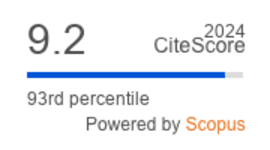The Burden of Vibrio sp. Infections – A Scoping Review
DOI:
https://doi.org/10.36877/pmmb.a0000340Abstract
Vibrios are a group of Gram-negative bacteria ubiquitous in our surrounding environments and responsible for various clinically significant human infections. The three species responsible for human illness are Vibrio cholerae, Vibrio parahaemolyticus, and Vibrio vulnificus. V. cholerae causes cholera which may result in severe dehydration and death without timely treatment, V. parahaemolyticus infection causes gastroenteritis while V. vulnificus infections typically manifest as wound or soft tissue infections with poor prognosis, including amputation or death. Available data on the epidemiology and clinical burden of Vibrio infections were compiled systematically following a literature review, and 149 relevant studies published between 2010 to 2022 were identified. Cholera represents the majority of Vibrio infections, affecting individuals of all ages and gender, while V. parahaemolyticus infections were found to affect mostly adult males. V. vulnificus infections were mostly reported in males over 50 years old with pre-existing co-morbidities. This review's findings may guide planning and implementing preventative measures in affected regions to prevent future Vibrio infections, disease transmission, and major outbreaks.
Downloads
Published
How to Cite
Issue
Section
License
Copyright (c) 2023 Ke-Yan Loo, Jodi Woan-Fei Law, Loh Teng-Hern Tan, Priyia Pusparajah, Sunny Hei Wong, Kok-Gan Chan, Learn-Han Lee, Vengadesh Letchumanan

This work is licensed under a Creative Commons Attribution-NonCommercial 4.0 International License.
Author(s) shall retain the copyright of their work and grant the Journal/Publisher right for the first publication with the work simultaneously licensed under:
Creative Commons Attribution-NonCommercial 4.0 International (CC BY-NC 4.0). This license allows for the copying, distribution and transmission of the work, provided the correct attribution of the original creator is stated. Adaptation and remixing are also permitted.

This broad license intends to facilitate free access to, as well as the unrestricted reuse of, original works of all types for non-commercial purposes.
The author(s) permits HH Publisher to publish this article that has not been submitted elsewhere.



.png)

.jpg)
